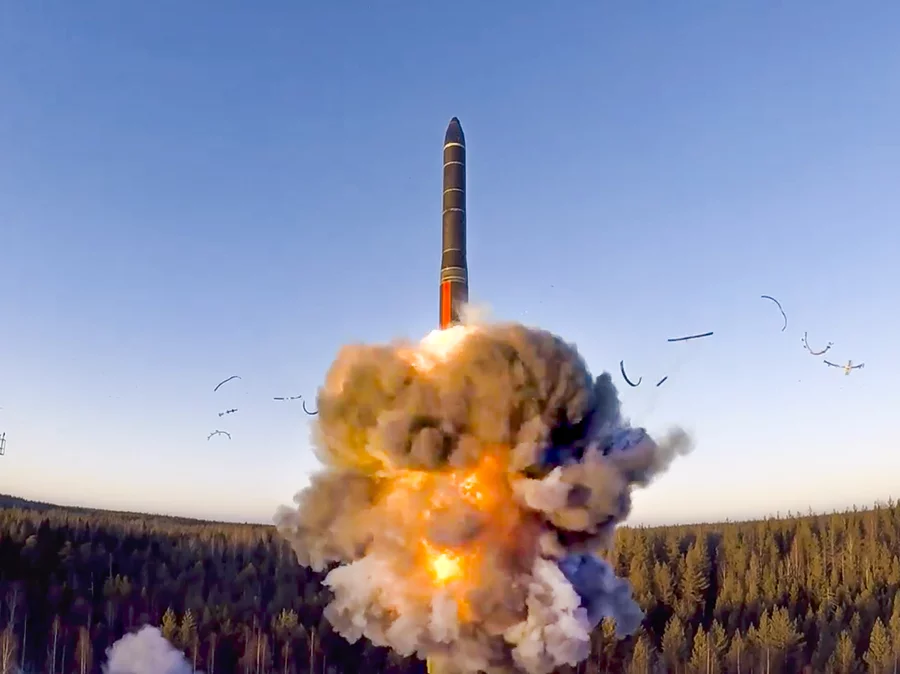
Responding to Moscow’s threats of nuclear weapons would by no means decrease the risk of a nuclear escalation. That is an antiquated assessment of conflict.
Those declared dead live longer. This saying unfortunately applies today to so-called realism, a theory that was influential in political science through the 1990s. It understands international politics as a pure power game between military alliances and sees the greatest chances for peace in polarization between two power blocs bristling with weapons. Even before Russia’s invasion of Ukraine, the American political scientist John J. Mearsheimer had reformulated this core hypothesis into the assertion that NATO had backed Russia into a corner with its eastward expansion and was thus ultimately responsible for a potential resort to armed conflict.
Feb. 24, 2022 may have contradicted Mearsheimer’s prediction that Vladimir Putin would not attack the “buffer state” of Ukraine because it would threaten Russia’s existence. But this incorrect prediction did not silence him or his European adherents. On the contrary, the backup hypothesis is now spreading in media houses, on talk shows, in newspaper columns and on social networks, that a cornered Russia may also result to using nuclear weapons to still achieve its military goals. For this reason, the theory goes — ignoring the genocide carried out by Russian troops in Ukraine — it is necessary to negotiate with the Kremlin and to make concessions to protect the world from what was a collective fear in the 1980s — a “nuclear Holocaust.”
Of course, since Hiroshima and Nagasaki, the risk that humanity would wipe itself out with nuclear weapons has existed. The threats by the Kremlin cabal to use nuclear weapons as a last resort in “self-defense” have doubtless increased this danger. But at the same time, we have learned since the development of the theory of nuclear determent in the 1960s that nuclear weapons are militarily useless because their use also creates an incalculable risk of self-destruction for the aggressor.
The vulgar realism of Mearsheimer and his ilk ignores the fact that in a world with multiple atomic powers, nuclear weapons are just an extremely dangerous negotiating tool with which Putin is trying to extract concessions that would be impossible to obtain by conventional military means. Thus, responding to Moscow’s threats would by no means decrease the risk of nuclear escalation, because President Putin could again, at the next confrontation, count on the nuclear option in the absence of conventional military means to extract even more obscene demands than the demand that Ukraine give up its sovereignty.
Of course, there is much disagreement in the debate among leading conflict researchers. But it is horrifying that the antiquated assessments of traditional realism still have such reach in public discourse. As in discussions about the coronavirus, media considerations of the Russian invasion should by now include the insight that the only real experts are the researchers who have produced internationally recognized, peer-reviewed publications on a topic and not just a Twitter account, a telegenic figure or a provocative opinion.

Leave a Reply
You must be logged in to post a comment.